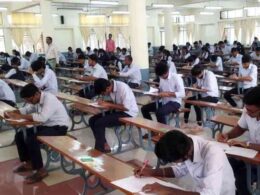The latest report by the World Health Organization (WHO) reveals that teenagers in Europe, Canada, and Central Asia are experiencing less family support and greater school pressure than before, which can potentially bring long-term consequences for their health and well-being.
The report, which surveyed nearly 280,000 teens aged 11, 13, and 15 across 44 countries, found a significant drop in the percentage of kids reporting high levels of family support, from 73 percent in 2022 to 67 percent in 2018. The decline was more pronounced among girls, with support dropping from 72 percent to 64 percent.
Alongside this, the study also revealed that school pressure is increasingly affecting teens.
In 2022, nearly two-thirds (63 percent) of 15-year-old girls reported feeling pressured by schoolwork, up from 54 percent in 2018, while 43 percent of boys reported the same, up from 40 percent.
WHO Europe regional director, Hans Kluge, stressed the importance of addressing these challenges, noting that declining family support and increasing school pressure could have long-term negative effects on mental health and future prospects of teenagers.
Kids with higher family support, typically from more wealthy families, tend to have better mental health outcomes.
The study also pointed to a decline in peer support, which fell from 61 percent to 58 percent, particularly affecting girls, where support decreased from 67 percent to 62 percent.
The report suggests that social pressures are especially tough for girls, who face expectations for both academic success and traditional gender roles, while boys often feel pressure to appear strong and self-reliant, discouraging them from seeking help.
To improve the situation, WHO calls for targeted interventions, including more inclusive school environments with smaller class sizes, mentorship programs, and social-emotional learning in courses of study.
The organization also recommends balanced homework policies, study support, and regular check-ins between students and teachers.
Additionally, governments are urged to provide financial support to low-income families and invest in programs that help parents, particularly those with teenage girls, to better support their children.











